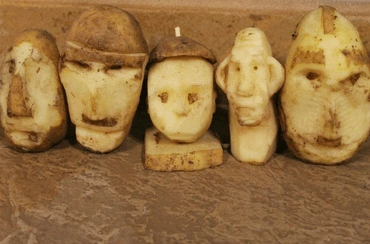1
Если кто согрешит тем, что слышал голос проклятия и был свидетелем, или видел, или знал, но не объявил, то он понесет на себе грех.
2
Или если прикоснется к чему-нибудь нечистому, или к трупу зверя нечистого, или к трупу скота нечистого, или к трупу гада нечистого, но не знал того, то он нечист и виновен.
3
Или если прикоснется к нечистоте человеческой, какая бы то ни была нечистота, от которой оскверняются, и он не знал того, но после узнает, то он виновен.
4
Или если кто безрассудно устами своими поклянется сделать что-нибудь худое или доброе, какое бы то ни было дело, в котором люди безрассудноклянутся, и он не знал того, но после узнает, то он виновен в том.
5
Если он виновен в чем-нибудь из сих, и исповедается, в чем он согрешил,
6
то пусть принесет Господу за грех свой, которым он согрешил, жертвуповинности из мелкого скота, овцу или козу, за грех, и очистит его священник от греха его.
7
Если же он не в состоянии принести овцы, то в повинность за грех свой пусть принесет Господу двух горлиц или двух молодых голубей, одного в жертву за грех, а другого во всесожжение;
8
пусть принесет их к священнику, и священник представит прежде ту из сих птиц , которая загрех, и надломит голову ее от шеи ее, но не отделит;
9
и покропит кровью сей жертвы за грех на стену жертвенника, а остальную кровь выцедит к подножию жертвенника: это жертва за грех;
10
а другую употребит во всесожжение по установлению; и так очистит его священник от греха его, которым он согрешил, и прощено будет ему.
11
Если же он не в состоянии принести двух горлиц илидвух молодых голубей, пусть принесет за то, что согрешил, десятую часть ефы пшеничной муки в жертву за грех; пусть не льет на нее елея, и ливана пусть не кладет на нее, ибо это жертва загрех;
12
и принесет ее к священнику, а священник возьмет из нее полную горсть в память и сожжет на жертвеннике в жертву Господу: это жертва за грех;
13
и так очистит его священник от греха его, которым он согрешил в котором-нибудь из оных случаев , и прощено будет ему; остаток же принадлежит священнику, как приношение хлебное.
14
И сказал Господь Моисею, говоря:
15
если кто сделает преступление и по ошибке согрешит против посвященного Господу, пусть за вину свою принесет Господу из стада овец овна без порока, по твоей оценке, серебряными сиклями по сиклю священному, в жертву повинности;
16
за ту святыню, против которой он согрешил, пусть воздаст и прибавит к тому пятую долю, и отдаст сие священнику, и священник очистит его овном жертвы повинности, и прощено будет ему.
17
Если кто согрешит и сделает что-нибудь против заповедей Господних, чего не надлежало делать, и по неведению сделается виновным и понесет на себе грех,
18
пусть принесет к священнику в жертву повинности овна без порока, по оценке твоей, и загладит священник проступок его, в чем он преступил по неведению, и прощено будет ему.
19
Это жертва повинности, которою он провинился пред Господом.







